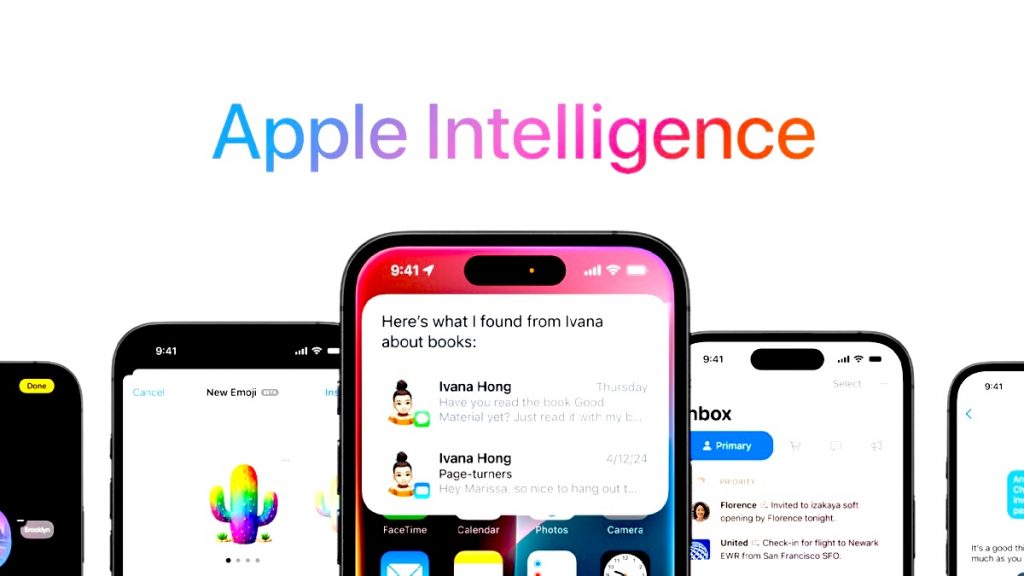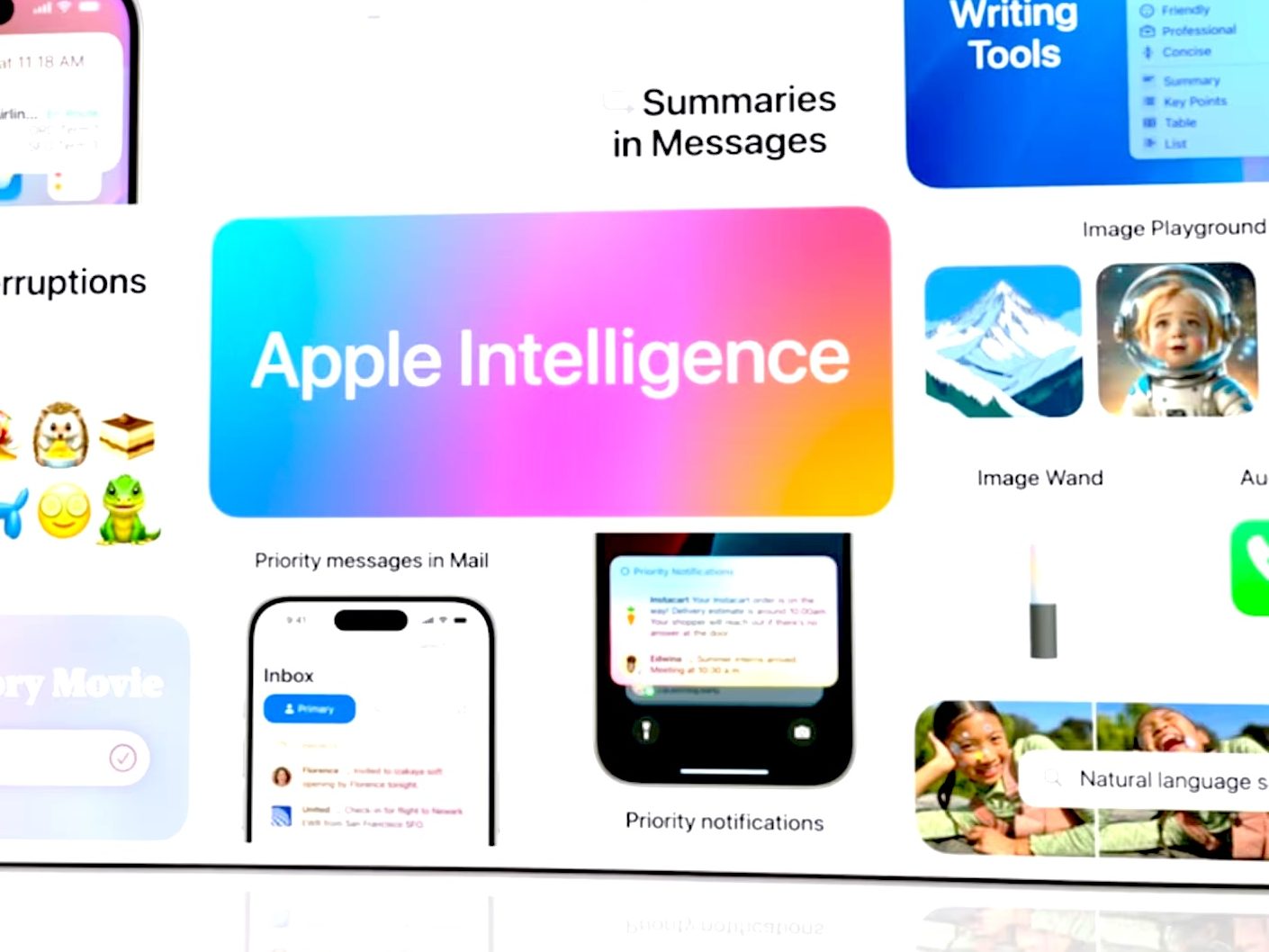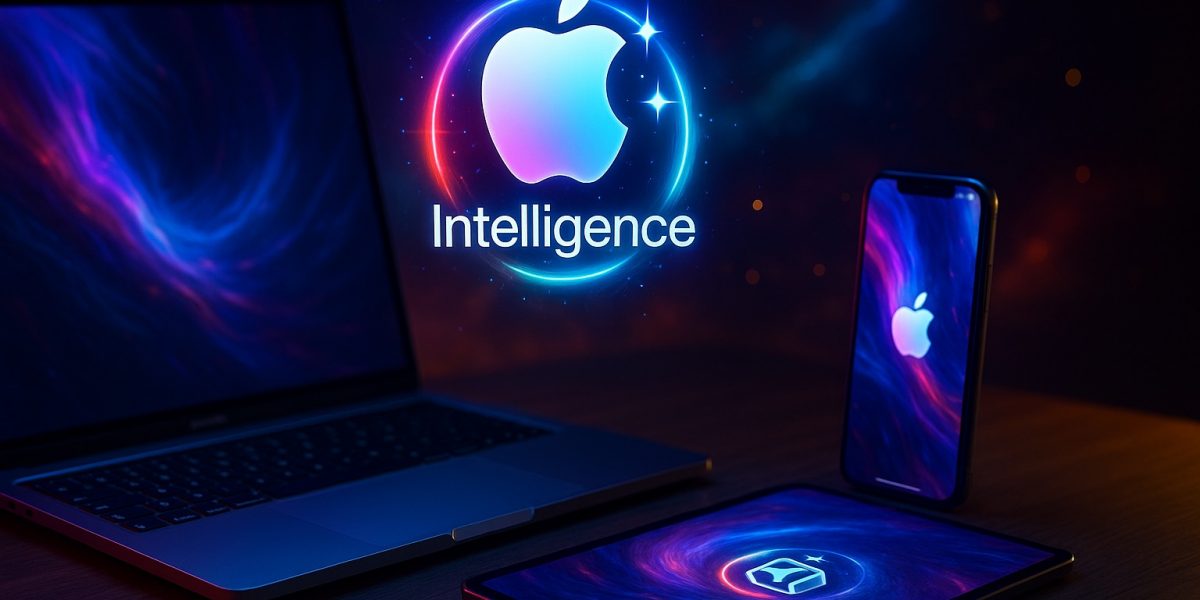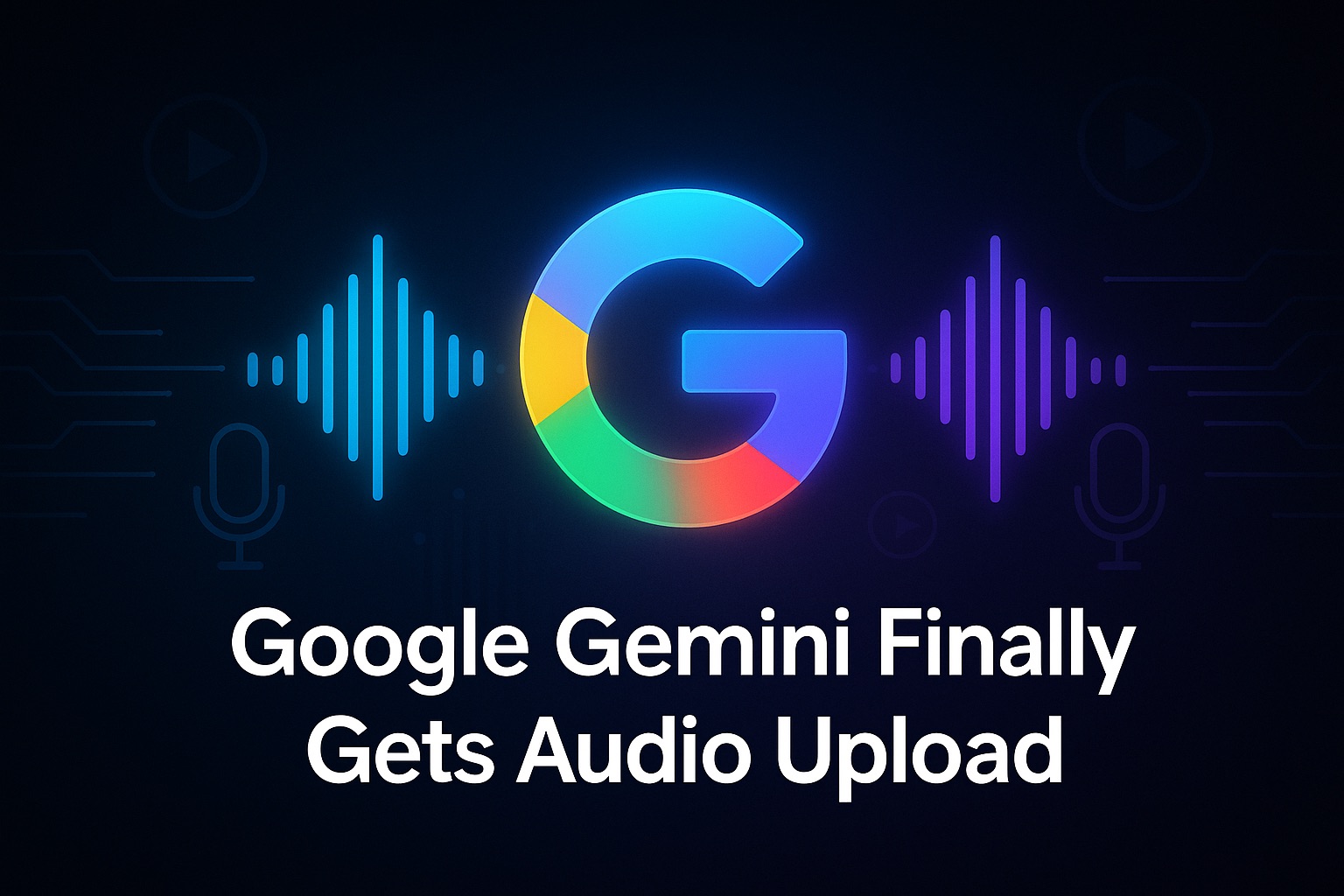The AI assistant landscape has evolved dramatically, with tech giants racing to integrate artificial intelligence seamlessly into everyday computing experiences. Our expert team has rigorously tested Apple Intelligence across multiple devices and use cases to help you understand whether this platform delivers meaningful improvements to your Apple ecosystem experience.
Our methodology involves hands-on testing across compatible devices, feature utility assessment, privacy evaluation, and competitive positioning analysis. Every aspect recommended has passed our quality checks and offers genuine value within the broader AI assistant market.
Key Evaluation Criteria:
- Writing assistance accuracy and practical utility
- Image generation quality and integration
- Siri enhancement effectiveness and reliability
- Device performance and on-device processing capabilities
- Privacy implementation and data security
- Cross-app integration and workflow improvement
We continuously monitor AI platform developments and update our analysis to reflect the latest capabilities and performance improvements across Apple’s ecosystem.
Top Picks Overview:
- Writing Enhancement Champion: Best for productivity and communication improvement
- Creative Generation Specialist: Optimal for visual content creation and customization
- Smart Assistant Evolution Leader: Superior voice interaction and contextual awareness
Each recommendation includes detailed insights into platform strengths, current limitations, and ideal user scenarios for maximizing Apple Intelligence benefits.

Apple Intelligence Platform Overview
Apple Intelligence represents the company’s pragmatic approach to AI integration, focusing on enhancing existing features rather than creating entirely new paradigms. The platform leverages both on-device processing and Apple’s Private Cloud Compute to deliver AI capabilities while maintaining the company’s privacy-first philosophy.
Core Platform Architecture:
- Small-model, task-specific AI training for efficient on-device processing
- Private Cloud Compute for complex queries requiring additional computational power
- Cross-app integration enabling seamless AI assistance throughout the ecosystem
- Hardware-specific optimization requiring Apple Silicon or A17 Pro processors
Current Availability Status: Available on iOS 18.1+, iPadOS 18.1+, and macOS Sequoia 15.1+ for compatible devices, with features rolling out in phases through 2025.
Writing Enhancement Champion Analysis
Apple’s Writing Tools represent the most immediately practical aspect of Apple Intelligence, integrating AI assistance directly into system-wide text editing across Mail, Messages, Pages, and other applications.
Text Processing Capabilities: Our testing reveals impressive accuracy in proofreading, tone adjustment, and summarization tasks. The system effectively identifies grammatical errors, suggests stylistic improvements, and can adapt writing tone for different contexts – from professional emails to casual messages.
Cross-App Integration Excellence: Unlike standalone writing assistants, Apple’s implementation works seamlessly across the entire operating system. Users can access AI writing assistance in any text field, from social media posts to document creation, without switching applications or copying content.
Summarization and Content Analysis: The platform excels at condensing lengthy emails, articles, and notifications into digestible summaries. Our testing showed consistent accuracy in capturing key points while maintaining context, particularly valuable for managing information overload.
Practical Utility Assessment: Writing Tools deliver immediate productivity benefits for users who regularly compose emails, messages, or documents. The seamless integration eliminates friction typically associated with AI writing assistance, making it genuinely useful for daily tasks.
Creative Generation Specialist Evaluation
Apple Intelligence introduces creative AI capabilities through Genmojis and Image Playground, though with a distinctly Apple-styled approach that prioritizes safety and brand consistency over unlimited creative freedom.
Genmoji Generation Quality: Custom emoji creation demonstrates Apple’s ability to maintain visual consistency while providing personalization options. Our testing revealed reliable generation of family-friendly emojis that match Apple’s existing design language, though creative options remain more limited compared to unrestricted AI image generators.
Image Playground Performance: The standalone image generation app produces consistent, high-quality visual content suitable for messages, presentations, and social sharing. The Apple house style ensures generated images maintain professional appearance while limiting potentially problematic content.
Integration and Workflow Assessment: Image creation integrates smoothly with Messages, Keynote, and sharing functions, enabling quick visual content generation within existing workflows. However, the stylistic constraints may disappoint users seeking more diverse creative expression.
Creative Limitations Consideration: Apple’s approach prioritizes safety and brand consistency over creative freedom, resulting in polished but potentially restrictive image generation compared to platforms like DALL-E or Midjourney.

Smart Assistant Evolution Leader Review
Siri’s integration with Apple Intelligence represents the most significant enhancement to Apple’s voice assistant since its original launch, though the most ambitious improvements remain in development.
Enhanced Contextual Awareness: The updated Siri demonstrates improved understanding of on-screen content and cross-app context. Our testing confirmed reliable photo editing requests followed by direct message insertion, showcasing genuine workflow integration that previous Siri versions lacked.
Visual Design and User Experience: The new glowing border interface provides clearer feedback about Siri activation and processing states. The visual update feels more modern and integrated compared to the previous floating orb design.
Current Capability Assessment: While improvements are noticeable, Siri still falls short of the advanced conversational AI capabilities found in ChatGPT or Google Assistant. Response accuracy has improved, but complex queries and nuanced requests occasionally produce unsatisfactory results.
Future Development Expectations: Apple has acknowledged that more advanced Siri capabilities requiring personal context understanding have been delayed due to quality concerns, suggesting current implementation represents an intermediate step rather than the final vision.
Device Compatibility and Performance
Apple Intelligence’s hardware requirements create a clear division between supported and unsupported devices, with significant implications for upgrade planning.
Compatible Device Categories:
- iPhone: iPhone 15 Pro models and all iPhone 16 variants
- iPad: M1 or later iPad Pro/Air models, A17 or later iPad mini
- Mac: All Apple Silicon Mac computers (M1 and later)
Performance Optimization: On-device processing provides responsive AI assistance without network dependencies for many tasks. Our testing showed minimal impact on battery life and system performance when using basic Apple Intelligence features.
Upgrade Considerations: The strict hardware requirements mean many recent Apple devices cannot access Apple Intelligence, creating potential upgrade pressure for users seeking AI capabilities within their existing ecosystem.
Privacy and Security Implementation
Apple Intelligence architecture prioritizes privacy through on-device processing and Private Cloud Compute, distinguishing it from cloud-dependent AI services.
On-Device Processing Benefits: Local AI execution keeps sensitive data on user devices rather than transmitting queries to external servers. This approach provides privacy advantages while enabling offline functionality for supported features.
Private Cloud Compute Assessment: When cloud processing is required, Apple’s custom server infrastructure running Apple Silicon maintains privacy protections equivalent to user devices. While this represents improved privacy compared to traditional cloud AI services, users must trust Apple’s implementation claims.
Data Handling Transparency: Apple provides clear documentation about which features operate locally versus requiring cloud processing, enabling informed privacy decisions. However, the complexity of hybrid processing may confuse less technical users.
Competitive Positioning Analysis
Apple Intelligence enters a competitive AI assistant market where established players offer different approaches to artificial intelligence integration.
Market Comparison:
- vs. ChatGPT: More integrated but less capable for complex reasoning and creative tasks
- vs. Google Assistant: Better privacy protection but limited knowledge base and conversational ability
- vs. Microsoft Copilot: Superior ecosystem integration but restricted to Apple devices
Strategic Advantages: Deep integration with Apple’s ecosystem creates seamless user experiences unavailable from third-party AI services. Privacy-focused architecture appeals to security-conscious users who avoid cloud-dependent alternatives.
Current Limitations: Restricted device compatibility and conservative approach to AI capabilities may disappoint users expecting cutting-edge artificial intelligence features available from more aggressive competitors.

Strategic Recommendations for Different Users
Apple Ecosystem Enthusiasts: Users heavily invested in Apple devices with compatible hardware will find Apple Intelligence provides meaningful productivity and convenience improvements worth immediate adoption.
Privacy-Conscious Users: The on-device processing and Private Cloud Compute architecture make Apple Intelligence appealing for users who avoid cloud-dependent AI services due to privacy concerns.
Productivity-Focused Professionals: Writing Tools and cross-app integration deliver immediate workflow benefits for users who regularly compose emails, documents, and messages within Apple applications.
Creative Professionals: Current image generation capabilities may feel restrictive compared to professional creative AI tools, suggesting patience for future capability expansion or supplementation with specialized platforms.
Budget-Conscious Users: The hardware requirements may necessitate expensive device upgrades, making Apple Intelligence a significant investment that should be weighed against alternative AI service subscriptions.
Third-Party Integration and Developer Opportunities
Apple’s Foundation Models framework enables developers to integrate Apple Intelligence capabilities into third-party applications, expanding the platform’s utility beyond first-party apps.
Developer Framework Benefits: The ability to leverage Apple’s AI models without cloud API costs creates opportunities for enhanced app experiences while maintaining privacy protections and offline functionality.
Integration Examples: Educational apps like Kahoot can create personalized quizzes from user notes, demonstrating practical applications that enhance existing workflows rather than replacing them entirely.
Ecosystem Expansion Potential: As more developers integrate Apple Intelligence capabilities, the platform’s value proposition will grow beyond Apple’s first-party feature set, potentially creating competitive advantages for the ecosystem.
Making the Right AI Platform Decision
Apple Intelligence delivers a distinctly Apple approach to artificial intelligence – prioritizing integration, privacy, and polish over raw capability and creative freedom. The platform excels in practical productivity scenarios and provides genuine improvements to daily Apple device usage, though it requires compatible hardware and may disappoint users seeking cutting-edge AI capabilities.
The free availability makes Apple Intelligence compelling for compatible device owners, while the privacy-focused architecture appeals to users concerned about data security in AI services. However, the conservative approach to AI capabilities and strict hardware requirements may limit appeal compared to more accessible cloud-based alternatives.
Whether Apple Intelligence represents the right choice depends on your device ecosystem, privacy priorities, and expectations for AI assistance. Users seeking seamless integration within Apple’s ecosystem will find meaningful value, while those requiring advanced AI capabilities or broader device compatibility should consider supplementary or alternative AI services.




Post a comment